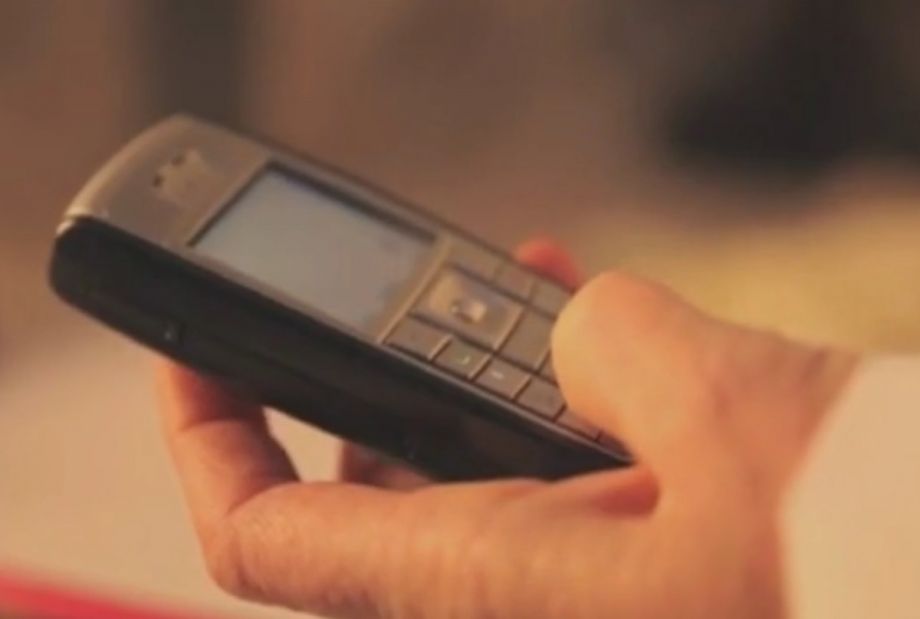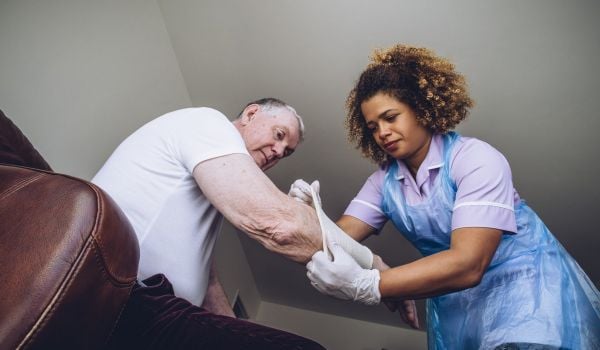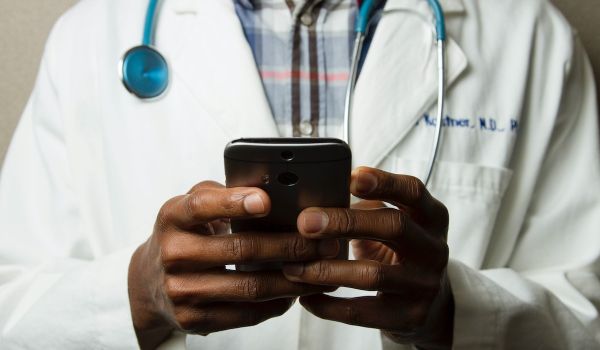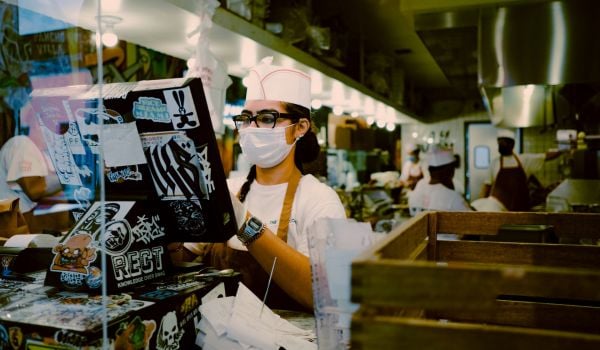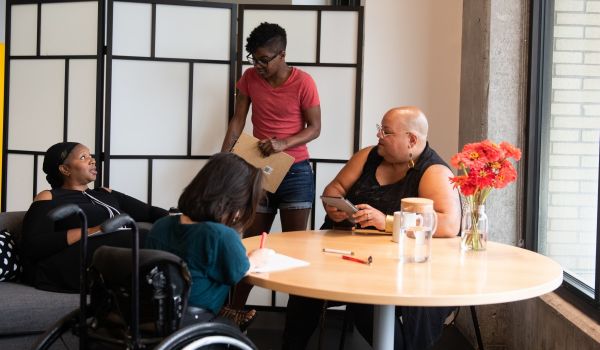When you get off the flight, you’re already antsy. At the baggage carousel, you watch black suitcases glide past until the crowd evaporates and only airport employees stacking airmail parcels remain. When the sign above the carousel changes to the next flight, you stalk over to a windowless office, where someone in a tidy polyester uniform fills in forms and explains that your bag never made it out of Barcelona. The airline will ship it to you when it comes in, she says, and offers an apology you can barely hear. You’re inconvenienced and fuming.
Now, instead of a flight, imagine a health clinic. Instead of a wayward Samsonite, think of missing medicine that will resolve your pain, cure your malaria or prevent your heart attack. There’s no office apologizing, no one to follow up with you tomorrow — and no way to tell if what you need will be available if you come back later. What then?
Drug suppliers “basically rely on sending out trucks kind of randomly,” nonprofit founder Daniel Yu says. “‘We’ll just fill it up, and we’ll send it out every three weeks,’ and it could be that the clinic doesn’t need anything that that truck brought by, or it could be that they should have had that stuff two weeks ago.”
For workers in the developing world, the disconnection between drugs and clinic pharmacies can have dire effects. Those who can ill afford to leave their farm fields or market stalls for a doctor visit are even more hard-pressed to return to clinics repeatedly to fill prescriptions — and the missing care imposes health consequences too. A 2014 MHealth Alliance paper on information and communication technologies explains, “The ability of countries to predict, forecast, and manage … essential commodities along their supply chains is critical to the success of saving the lives of the millions of women and children … from preventable deaths.”
Yu has a solution. While traveling in Egypt a few years ago, he noticed the supply-chain problem in a small-town pharmacy. The pharmacist acknowledged that drugs often expired unused, even as essential items remained chronically out of stock. Inspired, Yu dropped out of the University of Chicago and founded an organization to address the problem. He’s since rapidly accumulated an array of honors ranging from a slot in a competitive tech incubator to $100,000 in seed money to a prestigious social entrepreneurship award from the Prince of Wales.
Yu’s organization, Reliefwatch, monitors drug supplies in developing world health clinics via software that sends healthcare personnel robocalls. The calls ask them to enter the quantities of essential drugs on hand. The numbers they punch in automatically enter a cloud-based database, and real-time feedback on what the clinic does and doesn’t have in stock allows procurement agents and suppliers to meet current needs. That way, patients don’t leave clinics empty-handed — and clinics aren’t left with products gathering dust on their shelves. In two short years, Yu has implemented the program in hundreds of clinics in Honduras, Panama, Liberia and elsewhere.
Reliefwatch’s innovation allows them to offer big-data analytics to developing-world hospitals, which often still rely on minimalist, paper-based recordkeeping. But Reliefwatch also stands out for what it is not doing. The robocall-based system works on the most basic cell phone. It’s specifically designed to avoid the need for a smartphone.
This is in some ways an odd arrangement. Currently based in Nairobi, Yu is promoting a dumbphone-based technology in a city where all but the simplest mobile phones offer Internet service. With smartphones socially valued and the professional arena competitive, training in a data-based app might appeal to many healthcare workers.
Moreover, the company’s essential value lies in completing a feedback loop between clinics and their suppliers — and it’s a little ironic to not allow clinic personnel who upload data to access the resulting data dashboard for themselves. “The whole idea in terms of the system is that the data goes up into a cloud system that can then be accessed by a manager, the supplier, whoever is relevant,” Yu says. But access to that dashboard isn’t integrated into the robocall system. It’s an appealing advantage that a smartphone could offer.
Nonetheless, Yu says, the minimalist approach works well. The organization relies on robocalls because responding to a ringing phone “ends up being a much easier, much faster, more efficient system,” than responding to a daily flood of text messages about individual drugs. The system is also free of downloading and training requirements, simplifying set-up and permitting the organization’s swift expansion.
And while healthcare staff’s ability to see their own data is limited, the system is making a noticeable improvement in their supplies — a type of feedback in itself. Although he cannot pinpoint the effort’s impact on specific diseases, Yu says that Reliefwatch has reduced stock-outs to 10 percent of current levels, and has allowed clinics to shift excess items to facilities that need them. “From what I’ve seen and heard,” Yu says, a positive opinion of the system is “very much the case” among its daily users.
The next step, he says, is away from individual clinicians and toward a more thorough integration of the supply chain. “We’re starting to target a little higher up the chain,” he says. “A lot of conversations we’re having now are at the pharmaceutical company level, or at least at the pharmaceutical distributor level,” who might have “several organizations and hundreds of clinics beneath them.”
That aim echoes most public health stakeholders, who often wish aloud for integration as complete as the systems commercial businesses use. No wonder: An airline’s current accountability and apology at work in a developing world clinic sounds like a huge improvement.
The future could offer an even starker contrast. “We’ve been working with some airlines,” business mogul Vivek Ranadivé told Malcolm Gladwell a few years ago. “You know, when you get on a plane and your bag doesn’t, they actually know right away that it’s not there.” The time gap between the airline’s knowledge and passenger’s awareness has to do with poor communication between multiple databases — a problem that Ranadivé, a systems integration specialist, has aimed to fix.
From the perspective of a sick person hoping for effective medicine in the developing world, his proposed endpoint might sound like the stuff of dreams. “What we can do is send you a text message the moment we know your bag didn’t make it,” Ranadivé told Gladwell — or, perhaps someday, when we know your prescription is out of stock — “telling you we’ll ship it to your house.”
Reliefwatch from Reliefwatch on Vimeo.
The “Health Horizons: Innovation and the Informal Economy” column is made possible with the support of the Rockefeller Foundation.

M. Sophia Newman is a freelance writer and an editor with a substantial background in global health and health research. She wrote Next City's Health Horizons column from 2015 to 2016 and has reported from Bangladesh, India, Nepal, Kenya, Ghana, South Africa, and the United States on a wide range of topics. See more at msophianewman.com.
Follow M. Sophia .(JavaScript must be enabled to view this email address)


